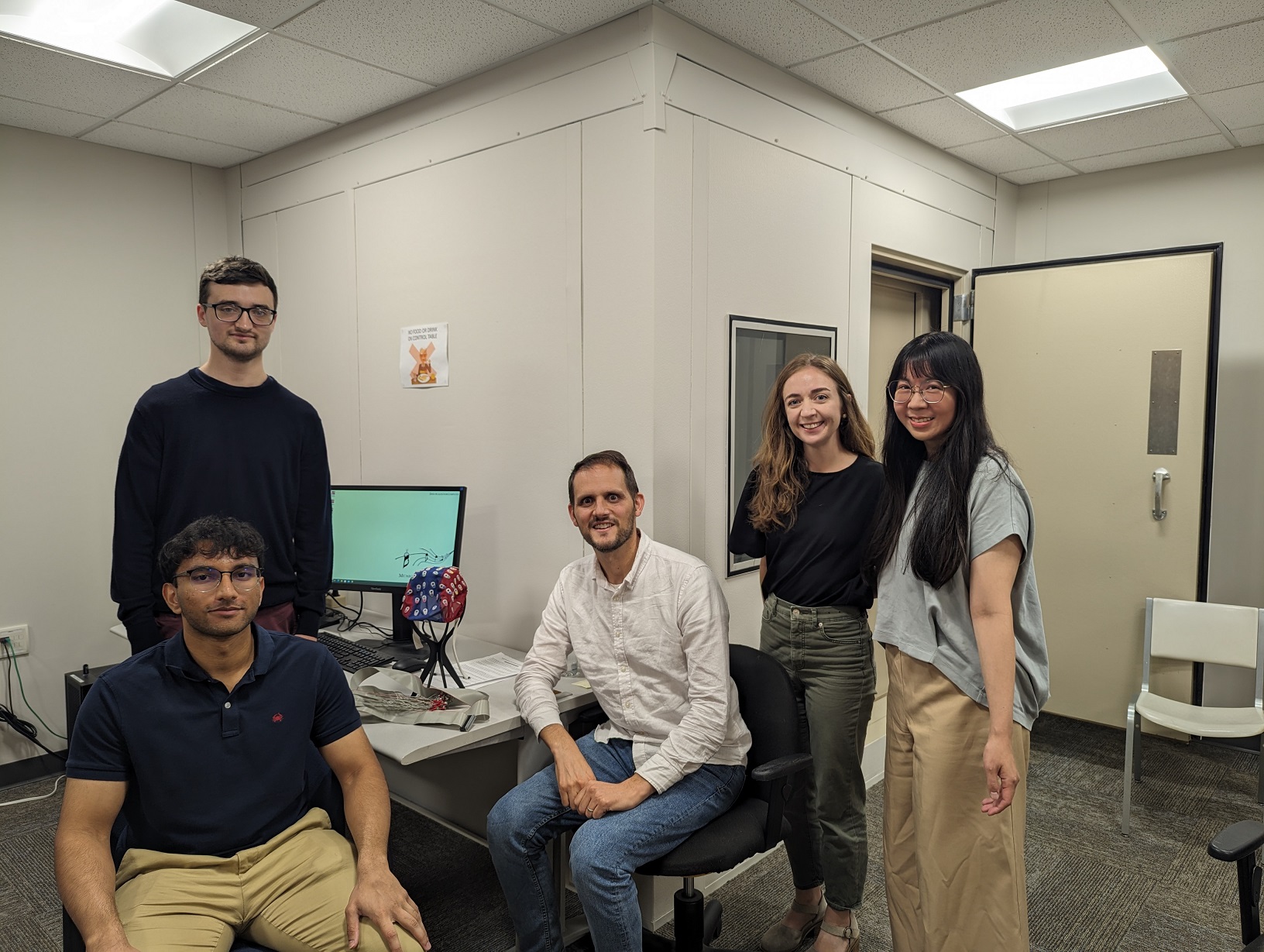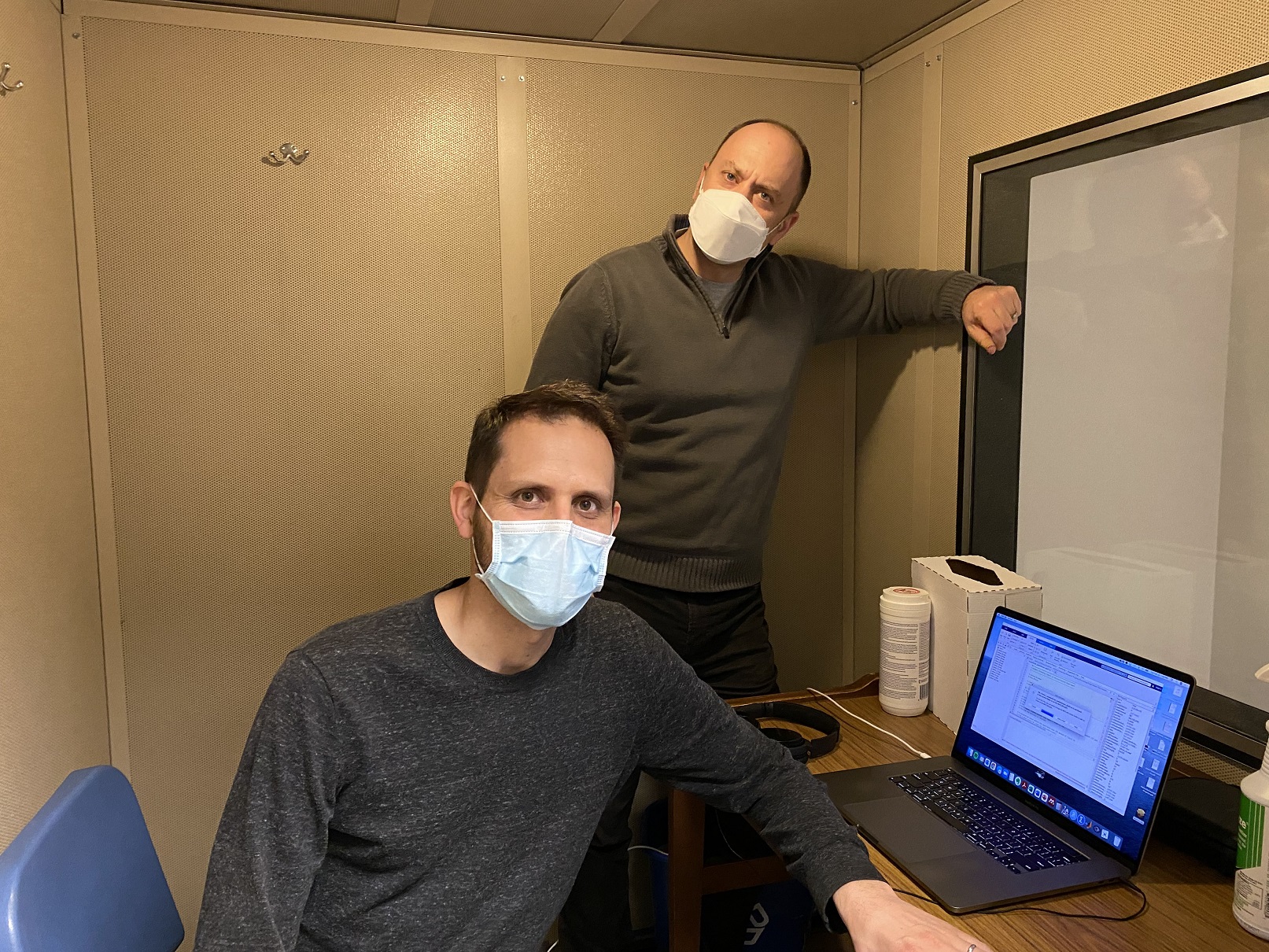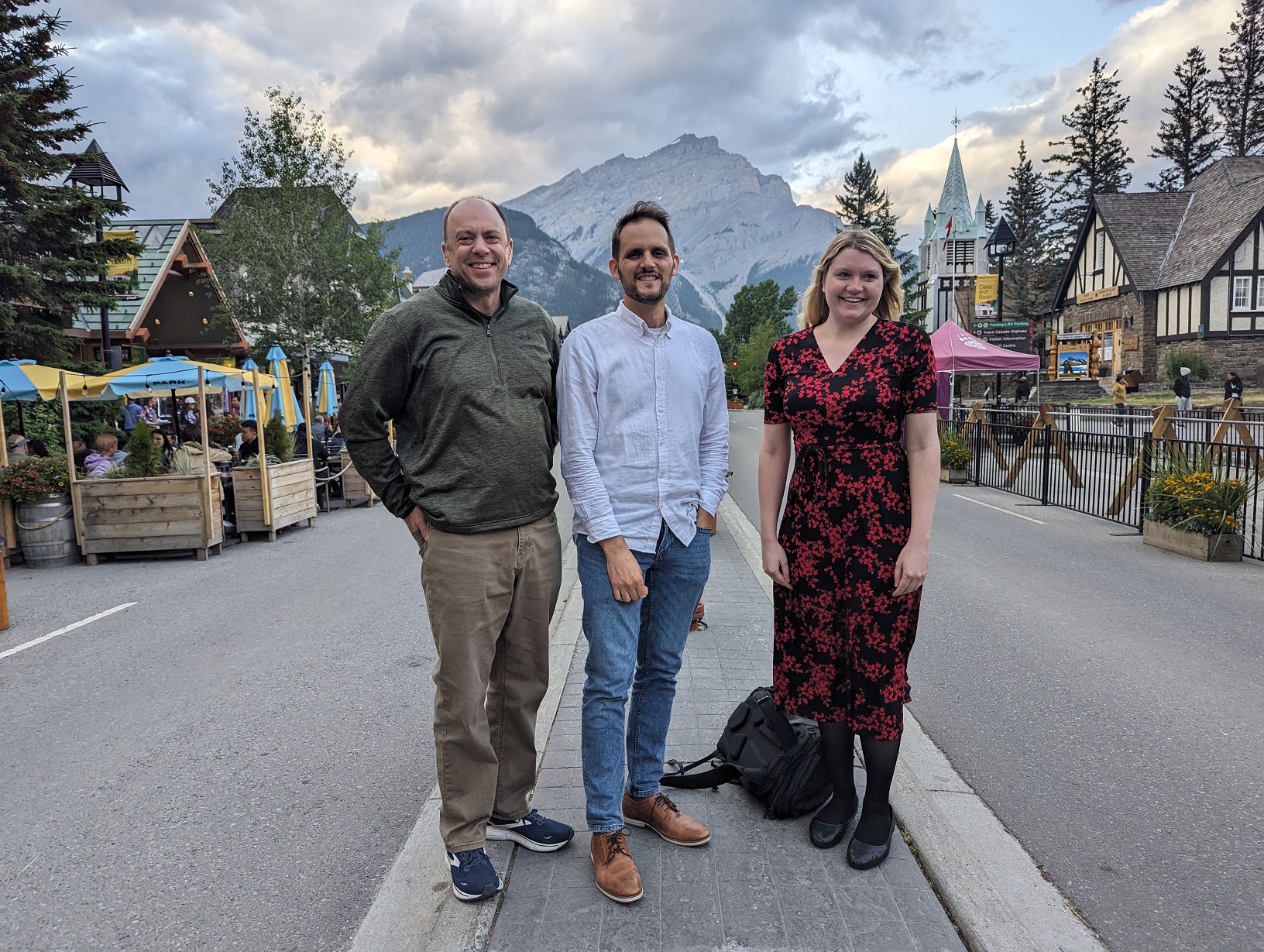Music and science have always had a close connection. From music’s place alongside arithmetic, astrology, and geometry in the ancient Greek quadrivium to the development of sound-recording technology and computer-generated music, the arts are never far from scientific inquiry. But the structure of the modern university can sometimes hinder a relationship between the two. Not at Indiana University.
The Jacobs Music and Mind Lab (MaML) hosts active collaborations across a variety of disciplines on IU’s campus. MaML’s director, Andrew Goldman, says that he and codirector Peter Miksza have felt supported by IU’s community since the lab’s earliest days. “It is clear that the IU community recognizes, appreciates, and sympathizes with our research questions and motivations. The administration has also been very supportive of our pursuits, for which we are grateful,” Goldman says.
MaML completed its first year of programming in 2017. The lab has grown a lot since then and today boasts an impressive list of projects spanning theoretical, pedagogical, and empirical topics. Here’s a sampling: the role of neuroscience in music research, including how it can be applied to understanding improvisation; how to teach children to become self-sufficient learners; the role of a performer’s facial expressions in audience perception of music’s emotional meaning; and using AI to analyze medieval music.
Of course, there are challenges to doing research that aims to address humanistic and scientific questions in equal measure. Miksza remarks that it can be difficult to talk with researchers outside the humanities about shared interests because of disciplinary differences. “Folks in the sciences are often very focused on a particular research question and apply very specific methods to their work, which can sometimes hinder building collaborative projects,” he says. “My approach for working through this has been to try to remain as open-minded as possible and embrace an eclectic strategy for developing a research program.”
This deliberate and creative eclecticism appeals to students across IU who are also interested in music cognition. Both Goldman and Miksza supervise several Ph.D. students who play active roles in the lab’s projects. Students can also do independent studies in the lab or work as research assistants. One such student is Thomas Mathias, a graduate student at Jacobs studying violin. Mathias was awarded $10,000 from the Presser Foundation for a project that he and Goldman completed together exploring the effectiveness of different practice strategies specific to the violin. Mathias took this research to Tokyo to present at the International Conference for Music Perception and Cognition during the summer of 2023 and recently published that work in the Journal for Research in Music Education.
Last year was a busy one for the MaML team. In addition to its ongoing research schedule and new projects, the lab was involved in events funded by Goldman’s most recent award: an IU Presidential Arts and Humanities fellowship of $50,000 for the 2024-25 academic year. The grant also helped fund, among other things, travel to connect the lab with other institutions across the globe.
Goldman also plans to use these funds to host a symposium on music cognition at IU. This will be an important opportunity for IU to establish its place at the productive crossroads of research in music and cognitive science. “Scientific work has something special to contribute to music studies, but it should not be confused for some ultimate answer on the nature of artistic experience,” Goldman notes. “In fact, I believe the answers often go the other way: our artistic experiences influence how we use science, and, in many ways, the humanistic perspectives have priority.”
In their work with MaML, Goldman and Miksza are committed to establishing Jacobs “as a place where people interested in the intersections of music and science can gather for intellectual pursuits and to conduct collaborative work.” They believe that not only will MaML continue to contribute to conversations in the field of music cognition, but that it will create a more well-rounded education for Jacobs students.




